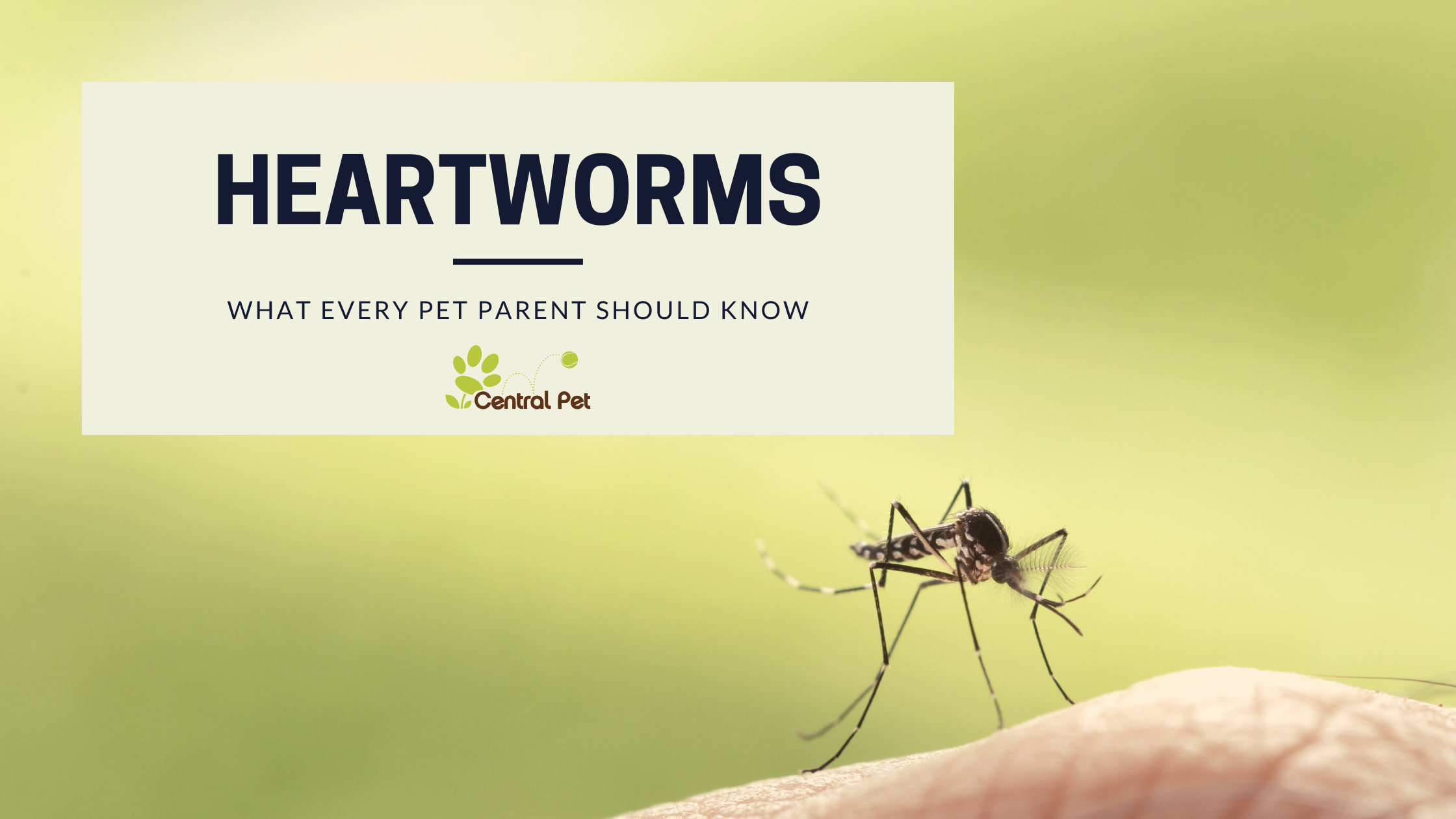Spring is coming at us full force, and with those warm, sunny days, it's likely that you and your pet will be enjoying some of the nice weather! As you're outside more and your pet is exploring, make sure that you are aware of the risks when it comes to heartworms and what you can do to protect your pet.
April is Heartworm Awareness Month, and what better way to celebrate than making sure that you're as educated as possible about this preventable disease and how it can impact your four-legged sidekick.
🐕Related Blog: What is Heartworm Disease?
The truth is, heartworm cases have been diagnosed in every state in the US. While it's less common in Arizona, we've noticed an uptick in cases over the past few years. It's no longer enough to assume that your pet will never get the disease. Instead, it's time to make sure you're doing all the preventable measures that you can to keep your furry friend as healthy as possible.
How are Heartworms Spread?
Heartworms are only transmitted via a bite from a mosquito. It is increasingly rare for heartworms to be spread from animal to animal.
Long-Term Impacts of Heartworms
First, let's go over some of the long-term impacts of heartworms. Even if you get an early diagnosis, your pet can still have some pretty serious health issues that they will have to deal with their entire life. We don't want that for your friend, and we know that you don't either!
One of the most unfortunate things about heartworms is that they can have long-lasting effects on the heart and pulmonary arteries. This makes sense because the parasites post up shop in these areas. Even with proper care and treatment, sometimes the damage is already done.
Heartworm Prevention Tips
It's important to note that there are some treatment options for dogs, but cats don't have this luxury. If you're a cat owner, then your only treatment option is prevention. While every pet owner should be diligent in protecting their pet from heartworms, it's especially important for those with feline friends.
Regular Veterinarian Check-Ups
Routine veterinary care is one of the best preventive measures you can take for your pet's health. Heartworms can impact your pet's body quickly and aggressively, and if your pet is already receiving quality veterinary care, then it's more likely your vet will notice any of the earliest signs of the disease. Your vet will also conduct yearly heartworm screenings to make sure that your pet is in tip-top shape.
Preventative Medication
There are a variety of medications that help prevent heartworms. Those medications may be given orally, topically, or by injection, and your vet can help identify which options are best for your pet. However, it's important to note that these medications aren't used for treatment and can actually have some serious side effects if your pet already has mature heartworms. Make sure that you talk with your vet before starting any preventative medication.
Protect Your Home and Yard
Remember, heartworm parasites are only spread by mosquitoes. Not only are mosquitoes a nuisance to yourself and your furry friends, but they can transmit this serious disease. There are many measures that you can take to keep your home and yard mosquito-free. Some tips include:
- Installing a screen door to help prevent mosquitos or other insects from entering your home
- Emptying outdoor containers so that stagnant water can't build up (mosquitos breed in stagnant water!)
- Using insecticide or other insect repellents in and around your home, but be mindful that the ingredients are pet-friendly.
When To Call Your Vet
Even with preventative measures in place, heartworms can still happen. It's important that you know some of the symptoms of heartworms so you can get your pet the care that they need as soon as possible. Some of the symptoms of heartworms include:
- Sudden weight loss
- Decreased exercise or physical activity
- Fatigue after any level of activity
- Vomiting
- Coughing
- Loss of appetite
If your pet has any changes in its temperament or regular activities, then you should consult with your veterinarian as soon as possible.
While heartworms can be a scary experience for you and your pet, the most important thing to remember is that there are both preventive and treatment options available. Many pets who receive proper treatment will go on to live happy lives. This year, for Heartworm Awareness Month, make sure that your pet is tested, so you know the status! Keep the conversation going with your pet about what you can do to protect your pet and what you should do if your pet is ever diagnosed.






